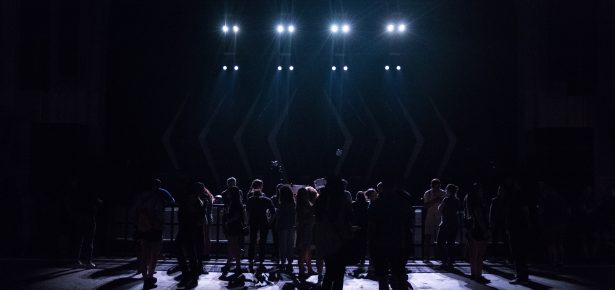
By the end of the 20th Century festivals were springing up all over the world like mushrooms. Events that used merely to be events had become, in current jargon, “festivalized” as the world experienced the “eventification” of culture, “the experience economy,” “city branding,” and the global emergence of “creative cities” and lucrative urban “festivalscapes” as lures for tourism and corporate investment. As the 21st Century dawned different kinds of festival had begun to emerge in reaction to newly globalized economies and ease of travel among countries and cultures. By the end of the new millennium’s first two decades, the outbreak of a global pandemic had brought all this activity to an abrupt halt.
In March of 2020 I was forced to return home to Canada from an extended research trip to Australia and Aotearoa/New Zealand, the culmination of years of travel to festivals on every inhabited continent on the planet. My project had been to ask how well international theatre and performance festivals contribute to and shape intercultural representation, negotiation, and exchange in the 21st century—a project now limited by COVID-19 to that century’s first two decades. I had set out to ask whether traditional western wisdom—that theatre and festivals share an origin in the competitive context of the Festival of Dionysus in fifth-century Athens—had skewed our understanding of their potential cultural role. I wondered whether an alternative origin story tracing both festivals and public performance to events among the Indigenous peoples of the world might provide new ways of thinking about the role festivals might play in mediating intercultural encounter. I was also interested in how effective the different kinds of theatre and performance festivals that had begun to emerge were in brokering such exchanges.
The book that emerged from this research—International Theatre Festivals and 21st-Century Interculturalism—addresses both questions and attempts to do a little more. It finds in the ceremonial, proto-theatrical activities of the Indigenous peoples of the world alternative festival models that constitute their communities not as spectators and judges, but as participants and witnesses, and that mediate exchange across difference often through the dispersion rather than accumulation of wealth. The book also, for the first time, offers a classification of different types of international theatre festival, ranging from “destination” festivals and their fringes and alternatives through a new model of curated live-arts festival to what I call “intracultural transnational” festivals designed to bring cultural communities or nations together across international borders. And it assesses the relative successes of each type of festival in enabling a new theatrical and social interculturalism.
What the global pandemic has added to my work is a new articulation of best, or “wise practices” concerning how festivals might emerge after Covid that might allow them to better facilitate the urgent types of cross-cultural encounter that festivals are uniquely positioned to enable. What began as a project about an ongoing present became an examination of a pre-pandemic past holding lessons for reconceived and newly productive festival futures.
Latest Comments
Have your say!